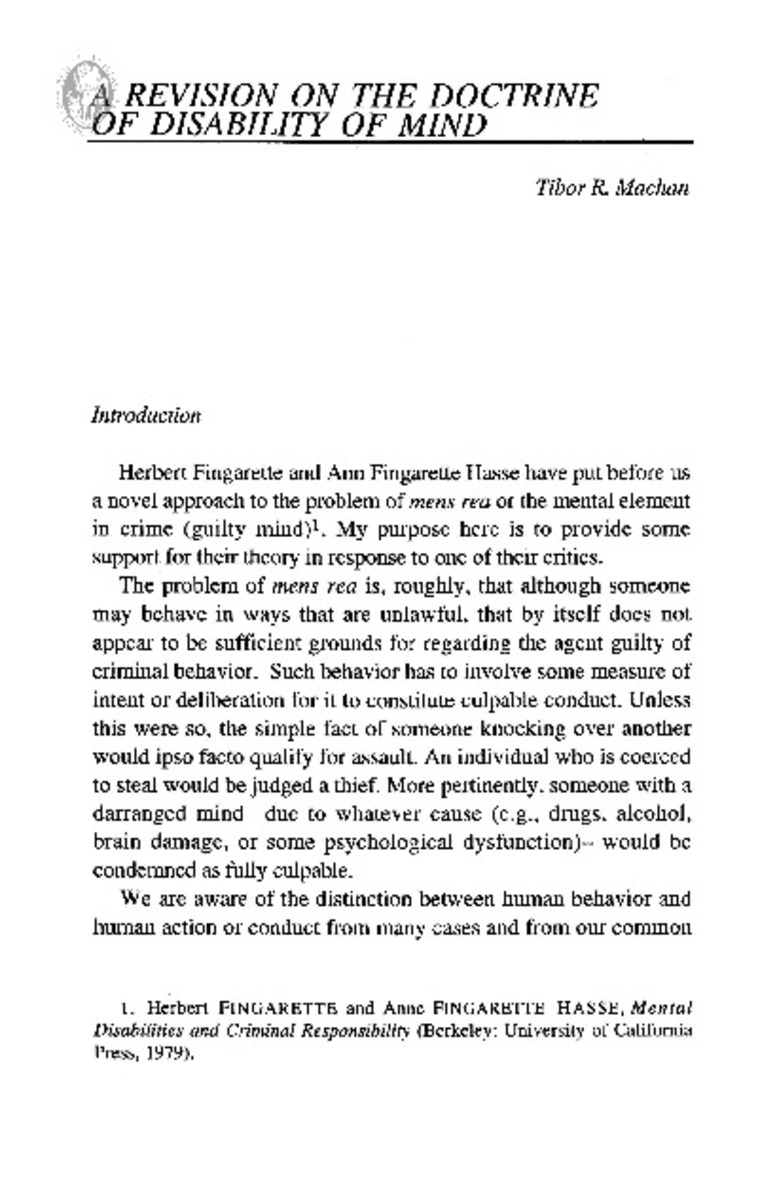Registro completo de metadatos
| Campo DC | Valor | Lengua/Idioma |
|---|---|---|
| dc.creator | Machan, T.R. (Tibor R.) | |
| dc.date.accessioned | 2010-09-23T08:05:13Z | - |
| dc.date.available | 2010-09-23T08:05:13Z | - |
| dc.date.issued | 1995 | - |
| dc.identifier.citation | R. Machan, Tibor. ""A revision on the doctrine of disability of mind"". Persona y Derecho, 33 (1995) : 213-222. | es_ES |
| dc.identifier.issn | 0211-4526 | - |
| dc.identifier.uri | https://hdl.handle.net/10171/12876 | - |
| dc.description.abstract | Does a person have the capacity to initiate his or her thinking process, of "getting into" some state of mind on his or her own accord? This is indeed the ancient philosophical question of whether at a most fundarnentallevel one is a free agent. If one is a free agent, it would appear that being free just within this sphere of one's self would make the most sense. AH the best arguments for free will suggest that freedom is a matter of one's control over one's consciousness. Philosophers as diverse as Aristotle, Kant, Sartre, and Hart seem to view the matter along such lines. The arguments about why determinism is selfrefuting do the same. And finally the occasional scientific accounts ofthe nature offree will also lead to this conclusion14. Perhaps the aboye adjustment will help further to preserve in law the notions of criminal responsibility as well as sensible excusing conditions based on disabilities of mind 15. | es_ES |
| dc.language.iso | eng | es_ES |
| dc.publisher | Servicio de Publicaciones de la Universidad de Navarra | es_ES |
| dc.rights | info:eu-repo/semantics/openAccess | es_ES |
| dc.subject | Materias Investigacion::Derecho | es_ES |
| dc.title | A revision on the doctrine of disability of mind | es_ES |
| dc.type | info:eu-repo/semantics/article | es_ES |
| dc.identifier.doi | 10.15581/011.32530 | es_ES |
Ficheros en este ítem:
Estadísticas e impacto
Los ítems de Dadun están protegidos por copyright, con todos los derechos reservados, a menos que se indique lo contrario.






